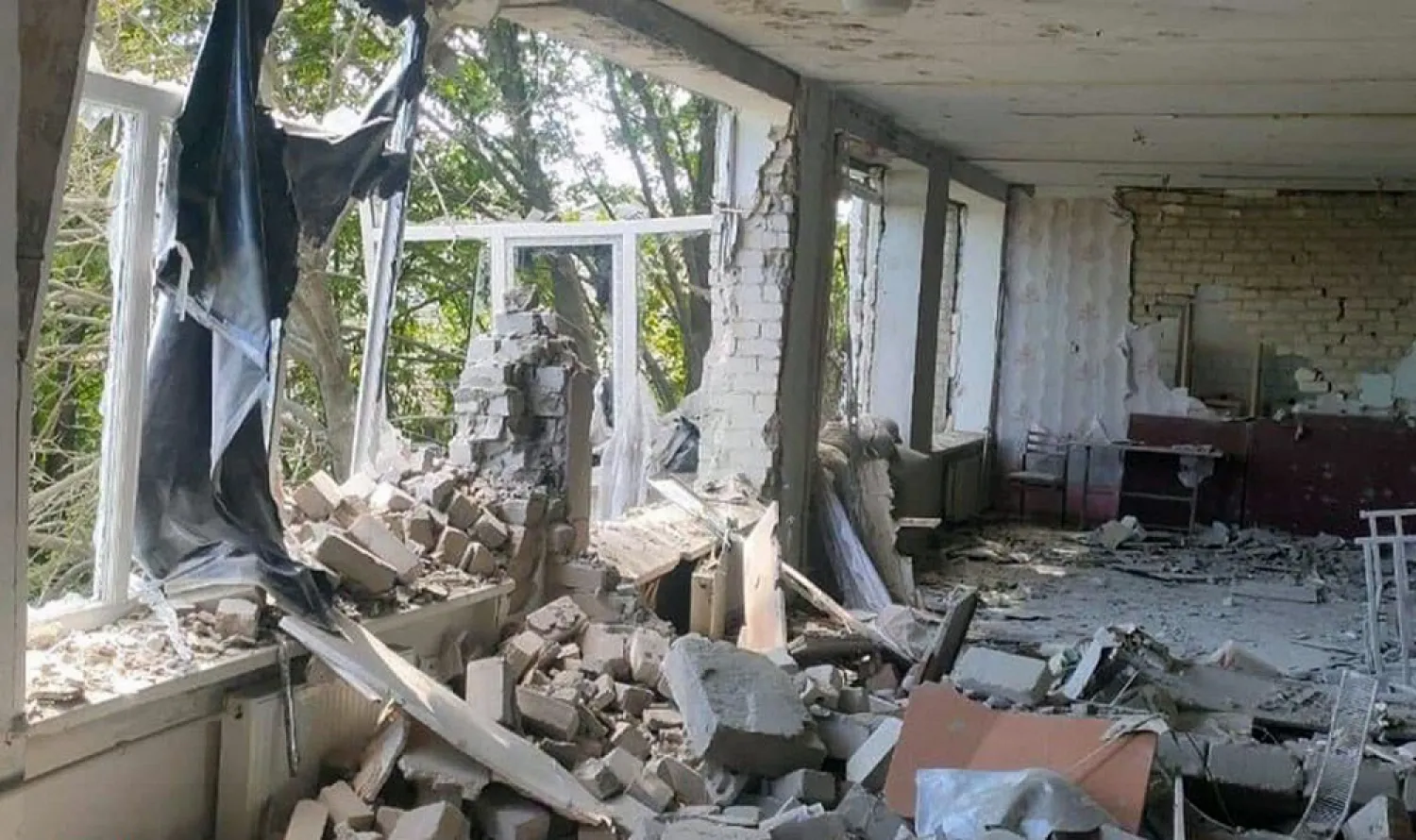Ukraine accused Russia on Wednesday of exploiting its capture of a nuclear power plant to fire rockets at a nearby town in an attack that killed at least 13 people and wounded many others.
The town Ukraine says Russia targeted - Marhanets - is one Moscow says its foes have used in the past to shell Russian soldiers at the Zaporizhzhia plant, which they seized in March.
Ukraine and Russia have accused each other of imperiling the plant, Europe's largest nuclear complex, with attacks nearby.
After the United Nations' atomic energy watchdog sounded the alarm over a potential nuclear disaster, the Group of Seven leading industrialized countries on Wednesday told Russia to hand back the plant to Ukraine.
There are no indications that their demand will sway Moscow, which on Wednesday received powerful endorsement from China of its rationale for the Feb. 24 invasion of Ukraine.
Beijing's ambassador to Moscow, Zhang Hanhui, accused Washington of backing Russia into a corner with repeated expansions of the western-led NATO military alliance and support for Ukraine's alignment with the European Union.
"As the initiator and main instigator of the Ukrainian crisis, Washington, while imposing unprecedented comprehensive sanctions on Russia, continues to supply arms and military equipment to Ukraine," Zhang was quoted as saying.
"Their ultimate goal is to exhaust and crush Russia with a protracted war and the cudgel of sanctions."
Beijing is also involved in a standoff with the United States over Taiwan: China has been conducting huge military drills around the self-ruled island it claims as its own since the visit of US House Speaker Nancy Pelosi
Russia has not commented on the Ukrainian allegations of an attack on Marhanets and Reuters could not independently verify Kyiv's version. Moscow says it does not deliberately target civilians in what it calls its "special military operation" aimed at safeguarding its security against NATO expansion.
Ukraine and the West accuse Moscow of waging an unprovoked imperial-style war of aggression.
New Russian ground force?
Andriy Yermak, President Volodymyr Zelenskiy's chief of staff, said Russia was launching attacks with impunity from Zaporizhzhia knowing it was risky for Ukraine to fight back.
"The cowardly Russians can't do anything more so they strike towns ignobly hiding at the Zaporizhzhia atomic power station," he said on social media
Ukraine says around 500 Russian troops with heavy vehicles and weapons are at the plant, where Ukrainian technicians continue to work.
Ukraine's state nuclear power firm has warned that containers with radioactive material might be shelled and said it is vital Kyiv retake the plant by winter. It accuses Russia of wanting to connect the facility to its power grid.
Russia says its forces are behaving responsibly and ensuring the complex's safety.
Valentyn Reznychenko, governor of Ukraine's central Dnipropetrovsk region, said on Wednesday that the Russian attack on Marhanets was carried out with 80 Grad rockets.
More than 20 buildings had been damaged in the town on the other side of the Dnipro river from the power plant, he said.
Images supplied by Ukrainian officials showed the rubble-strewn corridor of a school with its windows blown out and a residential building pierced by a rocket.
The war has crushed Ukraine's economy, but there was some relief on Wednesday when overseas creditors backed Kyiv's request for a two-year freeze on payments on almost $20 billion in international bonds. That should avert a messy default.
Ukraine said that would save around $5 billion as it manages its dwindling financial resources.
"The two-year debt freeze makes sense because even if the war ends soon, Ukraine's situation is not going to improve overnight," said Stuart Culverhouse, chief economist at London-based research firm Tellimer. "Creditors were even surprised that the country decided to be current on the bonds until now."
In another rare positive for Ukraine, the United Nations said it expects to see a big uptick in applications for ships to export its grain under a mediated deal intended to unblock exports and ease global shortages and price hikes.
Britain, which is helping Ukraine with arms, intelligence and training, said on Wednesday it believed Russia had "almost certainly" established a major new ground force to back its war.
The new 3rd Army Corps was based in the city of Mulino, east of Moscow, the British Defense Ministry said in an intelligence bulletin. However, Russia would struggle to build up the numbers needed and the new force is unlikely to sway the war, it added.









